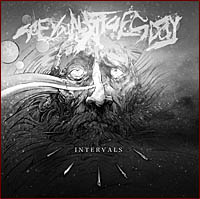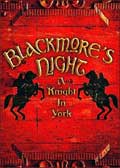SEE YOU NEXT TUESDAY (usa) - Intervals (2008)

Label : Ferret Music / La Baleine
Sortie du Scud : 14 octobre 2008
Pays : Etats-Unis
Genre : Grindcore Expérimental
Type : Album
Playtime : 17 Titres - 30 Mins
SEE YOU NEXT TUESDAY, c’est le genre de types qui ont des bouilles super sympathiques et des postures tellement dérisoires sur leurs clichés promotionnels qu’on leur donnerait le bon Dieu sans confession en échange d’une rondelle fleurant bon le délire entres amis. Comme quoi, se fier aux apparences est une erreur grossière. Puisque officieusement, nous sommes en présence d’un groupe composé de quatre mules furieuses profitant de chaque vide pour le combler d’une tartine de Grindcore à l’américaine. Vicieux, primitif, malsain, pervers, insalubre sont autant d’adjectifs qui pourraient caractériser Intervals, dernier-né de l’imagination fertile du quartet et successeur du trop moyen Parasite.
Fertile, oui, on peut employer le mot. Créer dix-sept pistes pour à peine une demi-heure de bruit, c’est en effet une facette de la fertilité. Pas celle que je préfère… Dès les premières notes, on sent nos petits américains désireux d’exploiter la notion d’expérimentalisme. « Nascence » est un avant-propos sombre et paralysant. Le combo joue sur la matérialisation d’un néant, bruitages métalliques, frappes martiales, distorsions à l’appui… avant d’entrer avec « In The End » dans le vif du sujet. Ce vif là transpire, suinte le Grind par tous les pores. Mais que serait un bon disque de Grind sans ses principales caractéristiques ? Un mauvais disque de Grind ? Sûrement. Toujours est-il que SEE YOU NEXT TUESDAY les respecte au pied de la lettre. Plages écourtées (palme pour « Alpha », cinq secondes), vocaux, bien évidement les plus dégueulasses possibles avec parfois des variantes plus gutturales (« She Once Said I Was A Romantic »). Guitares très graves, tranchantes et oppressantes maniées non sans habileté. Basse apriori affutée bien qu’assez souvent éclipsée. Et batterie surpuissante, redoublante d’effets (« In The Beginning ») et d’efforts qui laissent croire qu’Andy Dalton n’est vraisemblablement pas un manchot. Dommage qu’avec un tel respect des consignes, Intervals ne brille… que par intervalles. Trop compact et c’est bien là le gros défaut du Grind qui impose un protocole beaucoup trop académique pour laisser augurer quelconque once de musicalité. Dommage pour nous, SEE YOU NEXT TUESDAY ne déroge à la règle clairement que deux fois, sur « Forever On Deaf Ears » et « Dedication To A New Era ». A peine vingt petites minutes sont écoulées qu’on arrive déjà à la dernière composition, « January And On ». Le calcul est simple, c’est parti pour l’incontournable chansonnette épique qui dure dix fois plus longtemps que les autres. Calcul simpliste mais résultat pas toujours prévisible puisque les originaires du Michigan nous prennent à contre-pied, et royalement. Cette piste ne dure seulement que trois fois plus longtemps que les autres ! « Musicalement » parlant. Le reste n’est qu’un vaste foutage de gueule ! Sept minutes sur dix à entendre un vulgaire « tic-tac » en espérant qu’une énième petite Grindcordise pointe le bout de son nez. Voilà qui fait mal au portefeuille ; dépenser une somme pour vingt minutes de bruit et dix d’onomatopée mécanique à rendre fou ? Magnifique… si on est horloger.
La notion d’expérimental ne doit en aucun cas être un bouclier à la fadeur. Il faudra penser à en informer SEE YOU NEXT TUESDAY qui ne s’en sort que par sa maîtrise technique, une production valable et une durée très courte définie pour Intervals. Va falloir rectifier le tir… mais pas mardi prochain, j’ai rendez-vous avec l’ORL.
Ajouté : Mardi 11 Novembre 2008
Chroniqueur : Stef.
Score :   
Lien en relation: See You Next Tuesday Website
Hits: 12571
|














